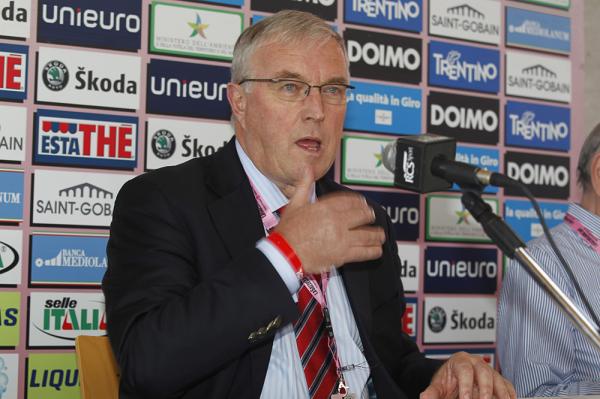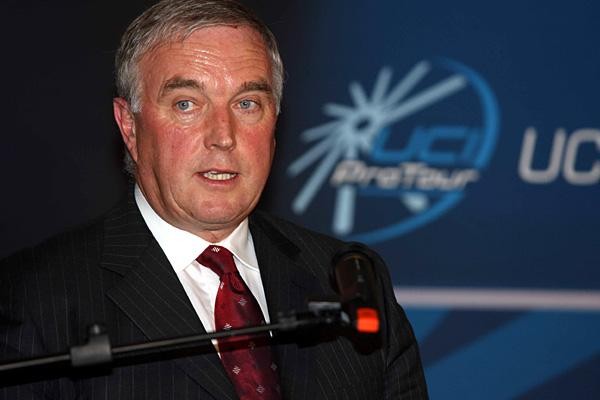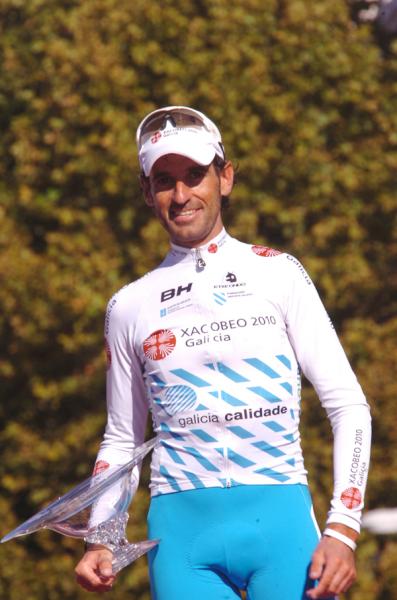McQuaid criticises Spanish government
UCI President says recent positive tests unacceptable



UCI President Pat McQuaid has hit out at the Spanish authorities following the recent positive doping cases emanating from that country, including Vuelta a España runner up Ezequiel Mosquera and Tour de France champion Alberto Contador.
Speaking during the UCI Road World Championships in Geelong, Australia, McQuaid was highly critical of the lack of work done by the Spanish Government to decrease the number and frequency of doping cases and called for increased efforts on its behalf.
"We have, over the past month for instance, sanctioned four big Spanish riders; that started with [Oscar] Sevilla, and then in recent days includes Mosquera, David Garcia Dapena and today, [Margarita] Fullana," McQuaid told reporters.
"I don't want to stigmatise Spain but what I do say is that I hope that the Spanish government, with the laws it has - which along with France and Italy, has the strictest law against doping but to my mind up until today hasn't been properly implemented - that they would take note and realise that something needs to be done."
Spanish cycling has been the focus of McQuaid's attention during past road world championships. The case of Alejandro Valverde and his involvement with Operacion Puerto - that eventually saw the Spaniard banned for two years - was central to the plot of the 2007 world titles, with Valverde originally prevented from competing but later reinstated in the national team following an appeal to the Court of Arbitration for Sport.
The Irishman explained that as he sees the situation, the integrity of Spanish cycling would be enhanced by increased efforts to quell the flames of doping in the sport. "Cycling's an important sport in Spain. The sport deserves the support of the government into trying to ensure they can completely clean their act up," he said.
Team management to blame
Get The Leadout Newsletter
The latest race content, interviews, features, reviews and expert buying guides, direct to your inbox!
McQuaid also pointed the finger at team managers, saying that in some cases their responsibility to ensure riders remain within a controlled environment are not met, resulting in behaviour that may lead to doping practices and hence a possible sanction for using performance-enhancing methods.
"I think by and large the teams have learnt and are aware that it's over - the doping culture is over, the doping practise is over and that they've got to move forward.
"Quite a few of the team management - team managers and team directors - are maybe not taking their responsibility [seriously] enough. They tend to leave the responsibility to the athlete. They say: 'These athletes are living in different parts of Europe or different parts of the world, we can't control them 24 hours a day'.
"I don't fully accept that - they do need to control their athletes more and I think they do need to know who their athletes are meeting with, they need to know even more during events what their athletes are doing and if things like blood transfusions are going on within the team ultimately I think the manager is to blame for that. He should have more control over the riders in the races.
"In relation to Spain again - and we could have a very good Spanish winner tomorrow from whom I don't want to take away anything from his victory at all - I think there is a problem in Spain because a large percentage of our doping cases come from Spain.
"There doesn't seem to be the will, so far, to tackle the problem in Spain. And that really then needs to come from the Government."
And whilst the damage done to cycling by doping is apparent, the influence on due process and the sport's reputation of leaks - witnessed in the Alberto Contador case - is also significant. McQuaid explained that the UCI is "following the results management process as it is in the rules" but admitted that leaks about doping cases is an ongoing discussion he has in his role on the board of the World Anti-Doping Agency.
"I don't have any specific information about any specific leaks - it's a discussion I've had and I'm on the executive board of WADA. It's a topic I've brought up with the board of WADA; they do their best to ensure those leaks don't happen. Other than that I can't comment," he explained.